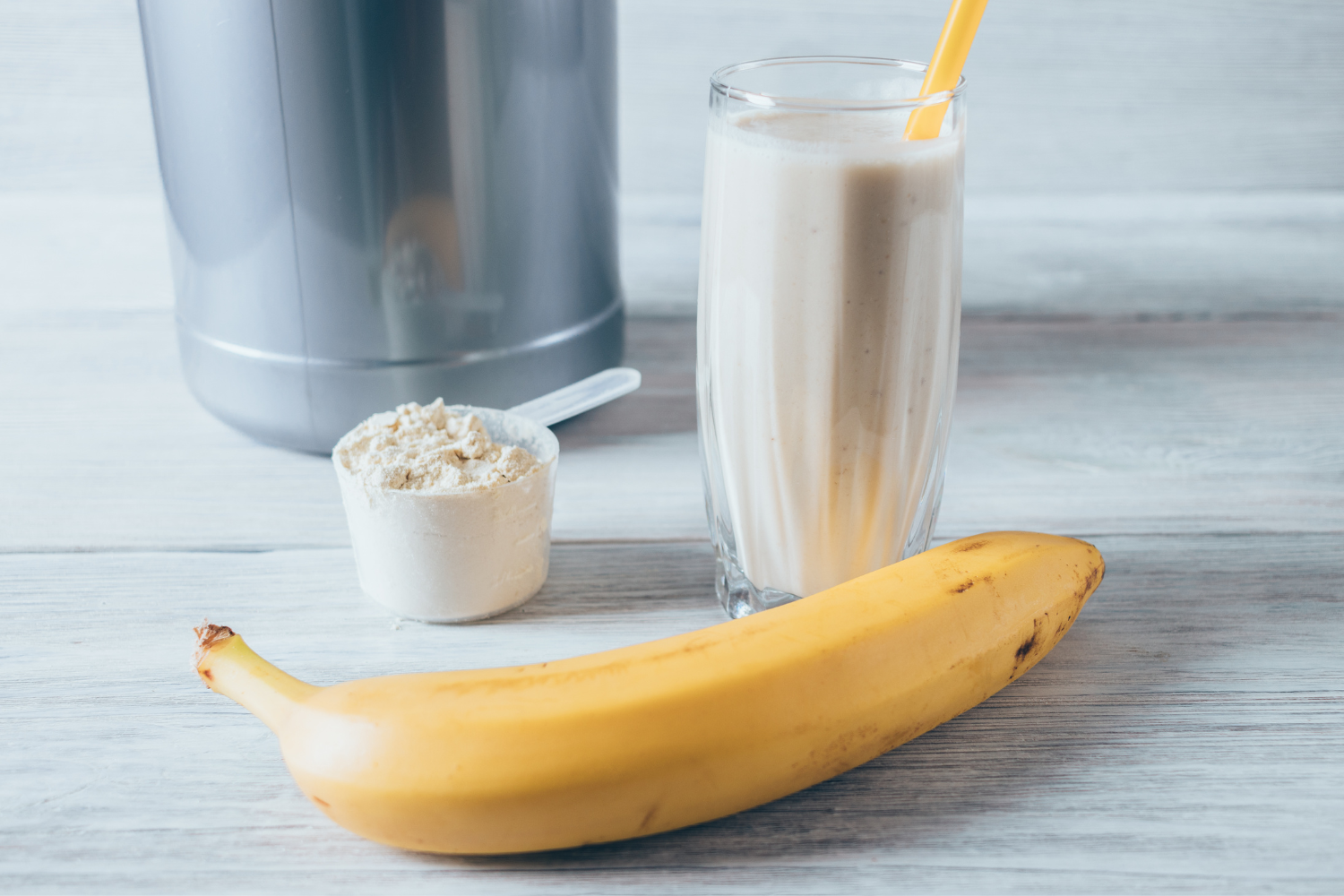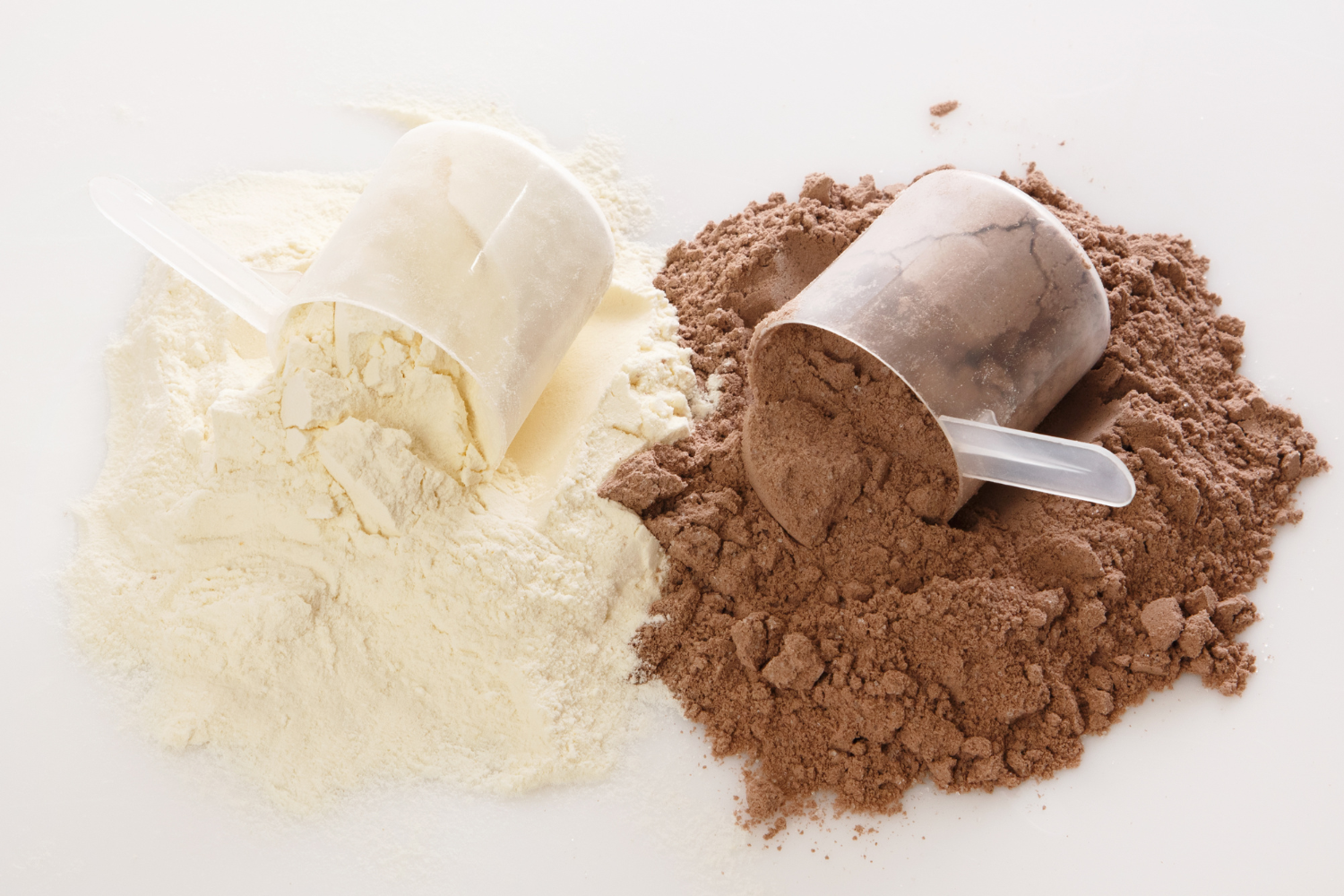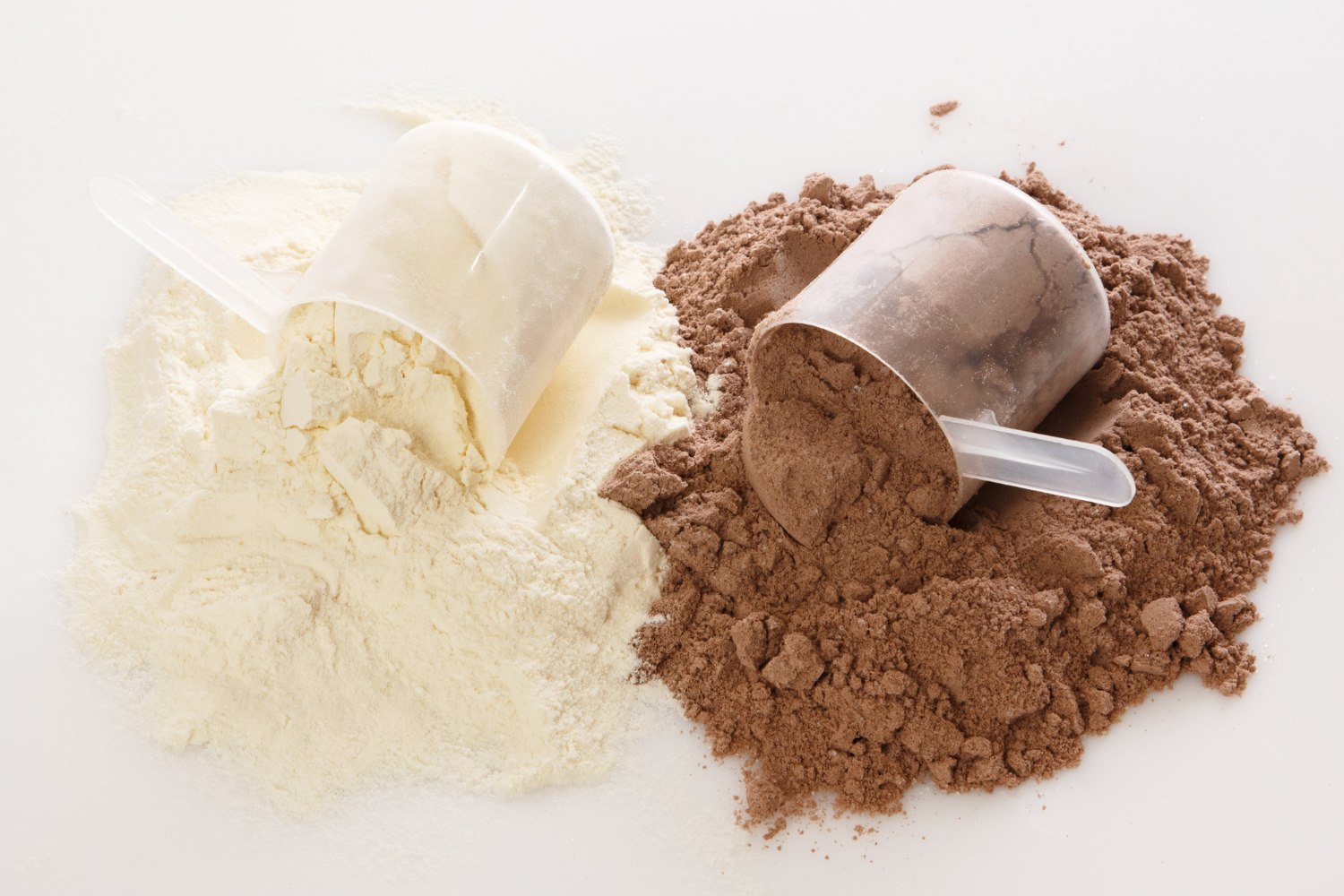Growing interest in fitness and strength training drives demand for muscle and strength supplements that support performance, recovery, and muscle development. For nutrition brands, these products represent a strategic entry point into a high-demand category focused on delivering real, functional results.
Athletes, bodybuilders, and fitness-focused individuals are consistently looking for supplements that align with their training goals, creating strong market potential for brands that can meet these expectations. Developing a product line that targets muscle growth and strength performance is key for companies looking to succeed in the evolving health and wellness space.
Understanding Muscle & Strength Supplements
Muscle and strength supplements are formulated to support muscle development, strength training efforts, and post-workout recovery. These products work alongside a healthy diet and regular exercise to help people reach their fitness goals faster and more efficiently.
They support training routines when used correctly by providing key nutrients that may be hard to get through food alone. Some supplements may help reduce exercise-related fatigue and support short-term performance when used alongside training.
Common Use Cases
People use muscle and strength supplements for different reasons, depending on their fitness level and goals:
- Athletes use them to improve performance, build strength, and recover faster between intense training sessions.
- Fitness enthusiasts often take supplements to increase lean muscle mass and support strength development.
- Beginners may choose easy-to-use products to help make their workouts more effective and see progress sooner.

Common Types of Muscle & Strength Supplements
Muscle and strength supplements come in many formats to fit different routines and preferences. Each type offers unique benefits, allowing brands to offer variety and meet the needs of a broad audience.
Popular Formats:
- Powders – Ideal for mixing into protein shakes or pre-workout drinks, powders support muscle repair and recovery after exercise.
- Capsules/Tablets – Easy to take and perfect for delivering ingredients like creatine, amino acids, and other strength-supporting nutrients.
- Ready-to-Drink Beverages – Convenient, pre-mixed options for people who need a quick protein or recovery boost on the go.
- Bars – Portable, protein-rich snacks that help support energy and muscle recovery between meals or workouts.

Benefits of Offering Muscle & Strength Supplements
Muscle and strength supplements are a smart addition for brands focused on health and wellness. They support active lifestyles while offering strong business potential.
Meeting Consumer Demand for Fitness and Performance
More people are joining gyms, lifting weights, and focusing on high-performance workouts. This trend creates a clear need for supplements that help improve strength and muscle results.
Supplements may support muscle recovery and training outcomes when used consistently with diet and exercise, and stay consistent with their fitness routines. Quality products give consumers a performance edge while supporting long-term goals.
Expanding Product Lines for Active Lifestyles
Muscle and strength supplements work well with other fitness products like energy boosters, pre-workouts, or weight management aids. They can easily become part of a complete fitness support system.
Brands can also create bundled solutions, such as pre- and post-workout kits, that offer more value and convenience to customers with active routines.
Building Brand Trust Through High-Quality Formulations
Using trusted ingredients like creatine and BCAAs can help your supplements stand out. These are supported by research and are known to deliver results.
Certifications such as NSF Certified for Sport, non-GMO labels, or gluten-free claims can also help consumers feel confident about product safety and quality. These details matter when appealing to people focused on the security of your connection between performance and health.
Key Ingredients in Muscle & Strength Supplements
Effective supplements rely on well-researched ingredients that support muscle, strength, growth, and recovery. Nutrition brands must understand which components deliver real results for fitness-focused consumers.
Protein Sources
Whey protein is a fast-digesting protein that helps repair muscle tissue and promote growth after training. It’s commonly used in shakes and is a staple for many strength-focused routines.
Plant-based proteins like pea, hemp, and rice provide solid options for people following vegan diets. These sources support muscle building while meeting the needs of those avoiding animal products.
Amino Acids
Branched-chain amino acids (BCAAs) are known for helping reduce muscle soreness and supporting quicker recovery after workouts. They are especially popular among strength athletes and weightlifters.
L-Glutamine helps reduce post-exercise fatigue and supports recovery between training sessions. It plays a key role in preserving muscle during intense physical activity.
Performance Enhancers
Creatine monohydrate is widely researched and may support strength and performance in high-intensity training. It’s one of the most studied supplements in the market.
Beta-alanine has been studied for its potential to support endurance by buffering muscle fatigue during intense exercise and improving endurance. It pairs well with other pre-workout ingredients.
Recovery and Hydration Support
Electrolytes such as sodium, potassium, and magnesium help maintain hydration and replenish minerals lost during physical activity, especially during long or intense workouts.
Tart cherry extract has been studied for its potential to reduce muscle soreness and exercise-related inflammation, making it useful for recovery-focused products and post-exercise support.

Steps for Nutrition Brands to Develop Muscle & Strength Supplements
Creating muscle and strength supplements requires a clear strategy, from research to product launch. These steps help brands develop reliable, effective products that meet consumer needs.
Conduct Market Research to Identify Consumer Needs
Understanding your audience is essential. Some buyers may be bodybuilders or athletes, while others are casual gym-goers looking for strength support.
Keeping up with popular trends like plant-based proteins or stimulant-free pre-workouts helps tailor your product lineup to current demands.
Source High-Quality Ingredients
Work with trusted suppliers that provide ingredients backed by research, such as creatine and whey protein. Look for sports-certified and safe options.
All ingredients should be tested for purity and potency. This ensures quality, supports performance claims, and builds consumer trust.
Formulate for Specific Fitness Goals
Create different formulas for different goals, such as muscle growth, endurance, or recovery. This allows your brand to reach a wider audience.
Use ingredient combinations like whey protein and BCAAs for full-body support and better results across training phases.
Design Packaging and Labels for Active Consumers
Make product benefits easy to understand with clear claims like “supports muscle recovery” or “enhances strength.” Clarity helps buyers make quick decisions.
Bold, fitness-inspired packaging designs connect better with consumers in gyms or retail spaces and make your product stand out.
Launch and Market Strategically
Plan your product launch around key fitness seasons like the New Year or summer, when more people set health and performance goals. Timing your release with seasonal demand can lead to stronger engagement.
Distribute free samples or trial packs to gyms, fitness centers, or online communities. This helps build awareness and encourages potential customers to try your supplements with minimal risk.
Marketing Strategies for Muscle & Strength Supplements
Strong marketing strategies help nutrition brands stand out in a crowded fitness market. A clear message and targeted approach can connect with the right audience and drive consistent sales.
Highlight Benefits That Resonate with Fitness Enthusiasts
Use simple, direct claims like “builds lean muscle,” “enhances workout performance,” and “speeds up recovery naturally” to make your product benefits clear. Focus on benefits consumers value, such as supporting lean muscle development or aiding post-workout recovery. These messages should reflect tangible outcomes fitness consumers care about.
Share educational content through blogs, social media, and videos to explain how your supplements fit into daily fitness routines. Content that shows actual results builds interest and trust.
Partner with Fitness Influencers and Athletes
Work with personal trainers, athletes, and fitness influencers who can show your products in action. Their audience already values muscle and strength, making it easier to build interest.
Use real testimonials and user stories to provide social proof. Authentic feedback helps new customers feel confident in trying your supplements.

Offer Bundles and Subscription Plans
Create bundles that combine pre-workout, post-workout, and recovery products into convenient fitness kits. These options help consumers stick to their routines.
Offer subscription discounts on core items like protein powders or amino acids to increase repeat purchases and long-term loyalty.
Why Nutrition Brands Should Prioritize Muscle & Strength Supplements
Muscle and strength supplements continue to see strong demand from active consumers looking for results-driven solutions. Nutrition brands can stay competitive by focusing on well-formulated products with proven ingredients. Addressing both performance and recovery needs not only supports fitness goals but also helps build lasting customer relationships in a growing wellness market.
Frequently Asked Questions
What certifications should muscle and strength supplements have?
NSF Certified for Sport, GMP certification, and third-party testing for safety and efficacy.
How long does it take to develop muscle and strength supplements?
Typically 6–12 months, including formulation, testing, and regulatory approval.
What are the most popular ingredients in muscle and strength supplements?
Whey protein, creatine monohydrate, BCAAs, and beta-alanine.
Are muscle and strength supplements safe for daily use?
Most are safe when used as directed, but formulations should avoid excessive stimulants.
Can muscle and strength supplements be combined with other products?
Yes, they pair well with pre-workouts, recovery supplements, and energy boosters for holistic fitness support.
References
- Mielgo-Ayuso, J., & Fernández-Lázaro, D. (2021). Nutrition and Muscle Recovery. Nutrients, 13(2), 294. https://doi.org/10.3390/nu13020294
- National Institutes of Health. (2024). Dietary Supplements for Exercise and Athletic Performance. https://ods.od.nih.gov/factsheets/ExerciseAndAthleticPerformance-HealthProfessional/
- National Institutes of Health. (2024). Dietary Supplements in the Time of COVID-19. https://ods.od.nih.gov/factsheets/COVID19-HealthProfessional/
- National Institutes of Health. (n.d.). Dietary Supplement Ingredient Database (DSID). https://ods.od.nih.gov/News/DSID_Announcement.aspx
- National Research Council (US) Subcommittee on the Tenth Edition of the Recommended Dietary Allowances. Recommended Dietary Allowances: 10th Edition. Washington (DC): National Academies Press (US); 1989. 6, Protein and Amino Acids. Available from: https://www.ncbi.nlm.nih.gov/books/NBK234922/
- U.S. Food & Drug Administration. (2024). Current Good Manufacturing Practices (CGMPs) for Food and Dietary Supplements. https://www.fda.gov/food/guidance-regulation-food-and-dietary-supplements/current-good-manufacturing-practices-cgmps-food-and-dietary-supplements
- U.S. Food & Drug Administration. (2024). Structure/Function Claims. https://www.fda.gov/food/nutrition-food-labeling-and-critical-foods/structurefunction-claims
- Wax, B., Kerksick, C. M., Jagim, A. R., Mayo, J. J., Lyons, B. C., & Kreider, R. B. (2021). Creatine for Exercise and Sports Performance, with Recovery Considerations for Healthy Populations. Nutrients, 13(6), 1915. https://doi.org/10.3390/nu13061915
- Wu, S. H., Chen, K. L., Hsu, C., Chen, H. C., Chen, J. Y., Yu, S. Y., & Shiu, Y. J. (2022). Creatine Supplementation for Muscle Growth: A Scoping Review of Randomized Clinical Trials from 2012 to 2021. Nutrients, 14(6), 1255. https://doi.org/10.3390/nu14061255



